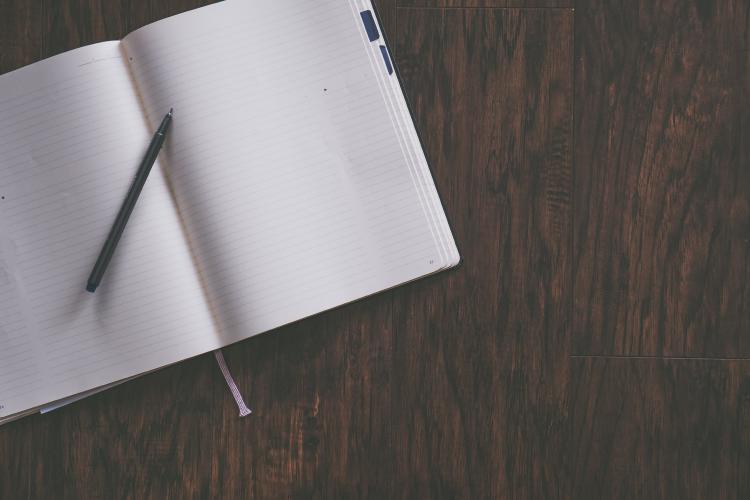How to Start an Engineer's Journal

Sitting down for a few minutes every single day and writing out what’s in our hearts is more needed than ever. Especially in the digital age for a programmer! Let’s discuss what’s journaling, and the value it can bring to us!
What’s Journaling
For journaling, you don’t need much, but an empty notebook and a writing utensil. There are different approaches to what you should write. Some write what’s happened in their day, some just write notes and some write their to-do lists and progression. There are some historical examples of journals and diaries, where people write their wisdom. Anne Frank, Nelson Mandela, Charles Darwin, Marie Curie, Leonardo da Vinci and of course Marcus Aurelius, just to name a few! It is natural to have thoughts coming and going in our head and with journaling we can focus these thoughts on paper. Take an ancient example: Meditations by Marcus Aurelius. This writing was never meant to be a book and read by others, to be honest. It was Marcus Aurelius’ private writings with his thoughts and philosophies. This is one of the only written knowledge about Stoicism filled with deep wisdom by the emperor of the ancient world. That particular journal is formatted in small, few sentences long pieces.
Benefits of Journaling
As I already briefly mentioned a diary is a focus-enhancing tool. Writing down your ideas helps you see the big picture. It helps to take a step back and observe the whole situation. It is somewhat of a problem-solving tool. You often end up writing lists down what you can not memorize and see together otherwise. Solving any problems should be done by breaking them down.
Journaling is also a great way of mindful living. As we previously discussed, we tend to lose focus in this busy digital age. We are reactive instead of proactive. Just think about the little situations during the day: We see a notification on the phone, so we stop what we do to pick it up. If we end up on social media or youtube, algorithms take us down various paths which are ai-tailored for our maximized engagement. With such distraction, we need all the tools which can help our day be organized and focused. Every time we sit down to write something with our bare hands, without a keyboard on our phone, it slows us down a little bit in a good way. It trains us to be conscious and mindful, just like meditation and it might help us relieve stress.
When writing down anything, it will clear up the fog. We can sorta see our thoughts without any brain-chatter, and see our options better. This is alone a great aid for having the best choices in life.
A physical journal is also accessible. It’s lightweight, portable and needs no recharge 😃!
The Toolset of a Great Journal
In my opinion, a journal is something personal. It should fulfill your and only your needs. I’m not a big fan of journaling templates, however, they are worth investigating to gather some ideas and tools you can use in your own style! In the end, it will be something organic and not something easily searchable, but that’s okay.
So let’s discuss what are the characteristics of a great journal! First and foremost I am a big advocate for hand-write your journal. I think in 99% of the cases it is more beneficial to have your diary offline, analog written! As I mentioned before, writing is better to do mindfully in peace to receive all of its benefits. So doing it on a computer or a cellphone, is probably a bad idea, since these tools are the main sources of distraction.
- Lists - Since we often end up using journals as an extension of our brains, they will contain many lists. It’s way easier to work with many items written on paper! Personally I almost every day write a simple todo list. It helps much during the day, especially when I have a little free time and instead of opening social media, it is better to take a look at the journal and see what else I should do instead!
- Data - By data I mean precise values which will be a struggle to remember otherwise. Important dates, measurement values, phone numbers and anything that you will encounter in your work or daily life. Especially when you are an engineer, it doesn’t matter if you are sitting in front of a computer all day, often it’s just easier to write down something and have your notebook always opened in front of you.
- Drawings - Thinking about/designing complex systems always need drawings. Once I heard “… a great engineer always explains by drawing!” and it’s true. When you draw a mindmap a diagram a blueprint of something it becomes much easier to understand and explain to You and everybody else!
- Quotes and Motivation - Personally, I like to keep a separate place at the beginning of my actual notebook, to store any important quotes I hear. These are the things that motivate me instantly and I find them surprisingly motivational/insightful. These few pages can serve as a little reminder you can go back and read any time you need a little pickup!
- Progress - Having a knowledge map and personal progress tracking written somewhere could be a cardinal part of self-improvement. It is also a nice piece of motivation to see your successes. You may have a fitness goal to lose weight or be able to X push-ups. You can track these. Do you want to learn 10 new IT technologies a year? You can write those down as well! There is something magical when you not tracking these in some app, but offline. Give it a try!

Benefits of Journaling For Engineers
Engineers probably deal with many data in their profession. Let’s take coders as an example. There are many different diagrams you can draw way easier than on a computer. For example UML diagrams, Sequence diagrams and Flowcharts. When you design big systems, especially at enterprise, the actual coding becomes less and less important and the architecture will become more frequently discussed. Electrical engineers also deal with a ton of different component values and circuit diagrams.
Let’s see a few examples of how journaling can help you with engineering situations!
- Prototype Architecture - The first one is quite obvious. You quickly prototype something and for the first versions you could quickly draw something and show it to your colleagues so you can discuss the approach. This is always a very important step. As Abraham Lincoln once said: “Give me six hours to chop down a tree and I will spend the first four sharpening the axe.” it’s very much true with all engineering jobs.
- Explore a new system - When just starting a new job, usually they slap you with a big wiki full of documentation and you spend your first month pretty much just investigating the company’s system. I think it is a good time to pick up a little journal and start drawing a little map of these systems. As you write it down you will memorize it better and instantly see the connections. You can introduce your own notes to these drawings which is also a big plus.
- Map Corporation Workflows - Engineers always love to optimize everything. I usually make a flowchart about how we work actually. Seeing and mapping things bird’s-view is a very good method when we want to optimize. You will see where the requirements are coming from, and whom to ask questions.
The best tool however I think is having a knowledge map and a learning list!
Personal Progress and Knowledge Map
I think as a professional you have to be up to date with the latest technologies and it is one of the best advantages to be able to keep your knowledge up to date! In our professional life, we should consciously seek improvement and journaling gives a great tool for this! First of all, we should understand what we know right now and make a mindmap about it. Don’t worry, this map will be way more detailed than any CV will ever be. You can write down every single module and buzzword you know and try to find connections. This will help understand where are you right now and what knowledge you missing. You can imagine this as a self assessment.
After this, you might have some understanding of what white spots you have. Now you can introduce the missing pieces as detailed as you can. There is maybe the webpage login-related stuff, which you do know not much about. It’s maybe databases. It’s maybe the DevOps part of the software stack you are developing. Now add these things to your mind map and it will serve as a little to-do list for you in case of free time. When you have the opportunity you can pick an unknown technology from this list/map and start learning it consciously, planned. If you have no such learning list, you will only encounter new technologies when facing them in the work. This is completely fine, but the workplace will probably try to specialize you somehow to a topic instead of letting you learning everything.
I hope you have some ideas now on how to incorporate journaling more into your professional life!



